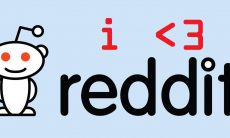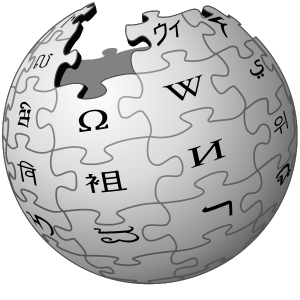 While reddit and Wikipedia are probably two of the most influential and powerful media platforms online today, they’re also the most intimidating because so many of us in the PR and marketing world have been not only burned but sent home tarred and feathers, never to go anywhere close to either of these sites ever again. “Why should I?,” you ask, “I can do everything my client wants with my own sites, through social media like Facebook and Twitter, and through SEO.” No you can’t. Ain’t nobody can launch a meme that’s heard ’round the world like reddit and there ain’t no place like Wikipedia to share what you or your client is most passionate about.
While reddit and Wikipedia are probably two of the most influential and powerful media platforms online today, they’re also the most intimidating because so many of us in the PR and marketing world have been not only burned but sent home tarred and feathers, never to go anywhere close to either of these sites ever again. “Why should I?,” you ask, “I can do everything my client wants with my own sites, through social media like Facebook and Twitter, and through SEO.” No you can’t. Ain’t nobody can launch a meme that’s heard ’round the world like reddit and there ain’t no place like Wikipedia to share what you or your client is most passionate about.
While I am still scared of my own reddit shadow, I have embraced Wikipedia in a big way. While I have been a proud member of Wikipedia since 2005, I really stopped working on the platform in any real way back in 2006; then, last year, I returned in style, and thought it a good time to share some best-practices, mostly philosophical advice. My best advice is: don’t be shady. I presented a webinar last Friday all about this. Enjoy and then scroll down — or click here — for my exposition. Be sure to scroll down, there’s some more good stuff down there.
My Personal Wikipedia Philosophy
- Shoot your inner used car salesman – selling, marketing, promoting, evangelizing, or persuading is strictly verboten
- Wikipedia is a community first – all entries are byproducts the community of Wikipedians
- You’re under 24-hour strict peer review
- Citations speak for themselves period
- Don’t try to do everything at once break it down
- Don’t be attached to outcome you’re not in control
- Don’t give up just because you’re challenged
Who & What Should Be on Wikipedia?
Because Wikipedia demands 3rd party citations, not everyone can be on Wikipedia. I’m not on Wikipedia. So, unless you are already notable, you should either reconsider or start working on getting yourself some worthwhile earned media mentions.
What or who should have its own Wikipedia entry?
Literally anything that can be substantiated through a number of verified citations – this isn’t a popularity contest, it’s an encyclopedia.
Become part of someone else’s page.
If your project doesn’t warrant a page of your own, you can develop your brand on other pages. Think about becoming part of a bunch of other pages. Becoming part of Wikipedia is incremental so bide your time.
Pros & Cons of Being in Wikipedia
- Pro – universally accepted as an important part of “being someone” online
- Pro – lazy journalists and writers generally rely on what they find out online about you – and Wikipedia is the first place they look
- Pro – generally speaking, your Wikipedia page shows up above the fold on organic search
- Pro – if there’s a link to your sites, the impact of a link from Wikipedia carries a lot of juice
- Con – if you’re controversial, a douchebag, unkind or unfair, Wikipedia makes it worse not better
Step 1: Become a Wikipedian
- Register for your own account – your Wikipedia account is your own. You’re now a Wikipedian. It’s a lifetime membership, sure to outlast your current position. Yes, you can edit anonymously. Don’t do it.
- Real name or nom de plume, it’s up to you – I joined Wikipedia at 9:42pm on March 11, 2005, as chrisabraham – and have indeed been in the doghouse myself. Most top Wikipedians have handles instead of their real names. It’s up to you. You build your Wikipedia rep on Wikipedia.
- Put together a really nice user page – mine’s terrible because my first elaborate version was self-promotional so they even nixed my user page, so go neutral, informational, and factual.
Wiki Markup Language 101
-
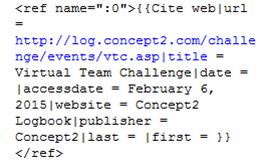 ==Category Heading==
==Category Heading== - ===Level 2 Heading==
- ====Level 3 Heading====
- [[Simple Link within Wikipedia]]
- [[Exact Wikipedia page|what you call it]]
- “Italic“ & “`Bold“`
- References & {{Cite}}</ref>
- {{External link|http://www.link.com}}
Wikipedia Rich Text Editor[beta] is Awesome
- Yes, it is great! – but if you don’t learn WML you’ll get stuck
Persistence is Always Rewarded!
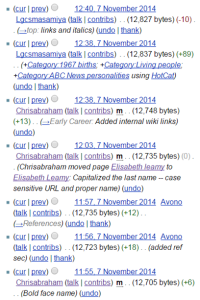 Don’t let the Wikipedians intimidate you – they’re just doing their job and they’re really not just trying to make your life tough – though it really feels that way
Don’t let the Wikipedians intimidate you – they’re just doing their job and they’re really not just trying to make your life tough – though it really feels that way- Learn the rules and push back – if you believe you’re in the right, there are a number of ways to contest and appeal undos and deletions
- The shifting sands – no matter what you do, the Wikipedians have as much ownership of your own content as you do. Most of the time, they improve pages in ways you cannot imagine; sometimes, they’ll reformat in a way that is just as good but entirely different – go with the flow.
- Keep ever vigilant – turn on the email notifications!
Chris Abraham’s Exposition on Wikipedia Management
The reason why folks stay away from Wikipedia is because the times they’ve actually decided to give Wikipedia-editing a go, they’ve treated this “anyone can edit” Wiki like the canvas of a freshly-whitewashed wall: sneak over there at the dead of night with a tag in their heard a bag full of spray cans.
If you could look into the heart of the typical super-Wikipedian, an empowered volunteer, sometimes a subject matter expert, sometimes a hall monitor — often both — you would see a man of conviction, character, and virtue. You would see a woman of passion and righteousness who would stop at nothing in order to turn Wikipedia into the most reliable and comprehensive repository of human knowledge anywhere in the universe, just short of that interstellar best seller, The Hitchhiker’s Guide to the Galaxy.
Now, last Friday I presented a webinar on Wikipedia management entitled A Step-by-Step Instruction On How To Manage Your Wikipedia Page and have tried to adapt that webinar into this blog post. I will embed both deck I uploaded to Slideshare, How To Manage Your Wikipedia Page, and the screencast of that same webinar as soon as I can get a copy from the host of the webinar, Bob Fine, editor of The Social Media Monthly and The Startup Monthly magazines.
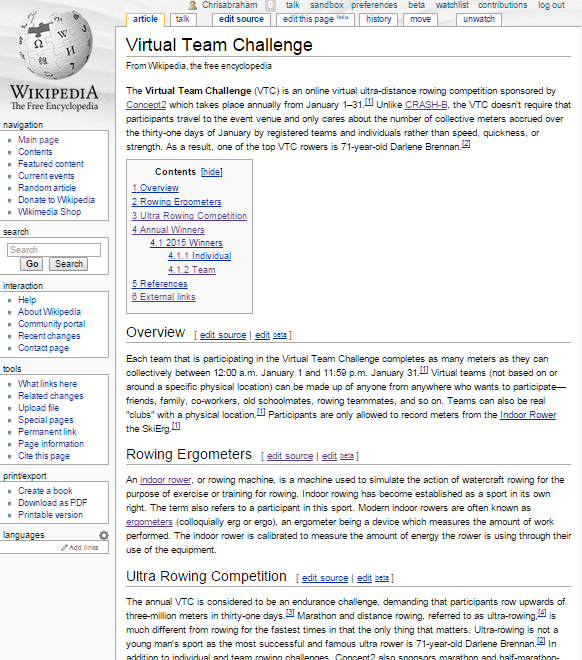 In support of the webinar, I haphazardly put together a Wikipedia page for a race that I just completed on January 31 after a month of rowing as many meters as possible on my Concept2 Indoor Rower, also known as an erg, along with the other members of my virtual team, Team Grotto (our Facebook Page). The race was an ultra distance row and the top two competitors, one of whom is a 71-year-old woman, rowed more than three-million meters in 31-days.
In support of the webinar, I haphazardly put together a Wikipedia page for a race that I just completed on January 31 after a month of rowing as many meters as possible on my Concept2 Indoor Rower, also known as an erg, along with the other members of my virtual team, Team Grotto (our Facebook Page). The race was an ultra distance row and the top two competitors, one of whom is a 71-year-old woman, rowed more than three-million meters in 31-days.
One thing I didn’t share in the webinar is the official process by which I work through proposed changes with my clients. For example, were Concept2 my client (they’re not) and they wanted me to chat more about
Addition 1
Date of Edit: Week of Jan 15
Section: Ultra Rowing Competition
Rationale: Adding more information about 71-year-old ultra-rower Darlene Brennan
Edit: Since 2008, Darlene Brennan has taken part in eighteen team challenges where she ranked #1 on the individual standings eight times. In four of the eighteen challenges, she easily completed more than one million meters and in eight, she completed more than two million meters. She also recently set 2 new world records recently for lightweight 70-79 women—one for rowing a million meters in thirteen days and the other for rowing 100,000 meters in just under 12 hours
Citation: http://www.concept2.com/news/meet-ultra-rower-darlene-brennan
From here, my client and I would go back and forth as to risk, any edits, any needs to reduce the level of shilling, of promotion, of salespeak, or any potential for blowback — we always brainstorm of potential unintended consequences. In fact, before you make any edits or posts, look at any other pages that might be in your space. Check out competitors or similar interests or people or products or brands. Look at structure, code, categorization, and also look at the history of the page to get an idea for what sort of controversies, conflicts, or debates might have gone on during the life of that page. It’s all endlessly fascinating.
I created the Virtual Team Challenge Wikipedia page to show my webinar attendees that as long as your heart is pure and your citations are third party and you can actually not be a cheesy used car salesman for a little while, you too can be a Wikipedian even if you end up doing it on behalf of yourself, your client, your boss, or as a paid gig.
And I also wanted to show my attendees that you should really build up your Wikipedia pages organically instead of designing it from the ground up. Wikipedia needs to be a collaborative environment — it was designed that way — so often you will need to build the page up, germinating it from a wee bit of cited content before you start building it up and breaking it into sections. Because you’ll never know what the editors will want to do with the page that is inconsistent with your vision. This is a messy London and not a planned Paris.
I also created that wee page on the morning of because none of my clients want me to discuss that they utilize a Wikipedia consultant, right? It’s sort of like plastic surgery or gastric bypass surgery: brands want you to believe that they’re naturally that beautiful and thin — and have always been that way, too.
I know how it feels: I have been in the social media marketing and digital PR business as a pro since 2003 and have yet to receive lots of awards or have an amazing entry on Wikipedia. That is until I realized that, in most cases, it’s a racket: awards are all pay-to-play and you need to actually apply for them, they don’t tap you out of the blue; and, unless you’re so universally popular that folks are writing PhD theses or fan fiction on you, you need to find a way to collect a dozen third-party citations about how amazing you are and how much you’ve done for humanity before you hire someone else to de-douche the overly saccharine bio you wanted to shoe-horn into Wikipedia under your own name and get them to turn it into a neutral and worthwhile page, exceptionally-cited and referenced, and then adapted to the many schemes and protocols, such as categorization, before you become immortal.
Don’t be afraid, Wikipedia isn’t anti-capitalist or anti-market, per se, they’re just sick and tired of being constantly puked on by arrogant and entitled brands who believe it’s their god-given right not only have their company on Wikipedia but also all their products, their C-suite executives, and their board as well. No! No!
That said, the Wikipedians are no pushovers. Visiting Wikipedia is sort of like visiting Paris as an American. The French are pretty playful people; however, their sense of humor feels to us Americans more like mockery, insult, and hazing. Wikipedia’s like that. Don’t be a pushover if your first attempt is summarily deleted. Don’t despair of your vision for a page goes into the rubbish and what ends up in it’s place is factually the same page — but completely different. This is a collaboration and Wikipedians have very strong opinions and a canon of protocol, structure, and decorum to back them up. Don’t be a pushover. Just because you get spanked doesn’t mean you don’t have recourse. There’s an entire official appeal process through which you can contest undos, reversions, deletions, and very aggressive or negative edits — but please do follow the process of escalation. Start with appealing to the editor in the Talk section before you start crying to mommy.
If you browse through my below philosophical treatise on how you — yes you! — can become a Wikipedian and want to call BS on me or have some additional questions, please let me know.

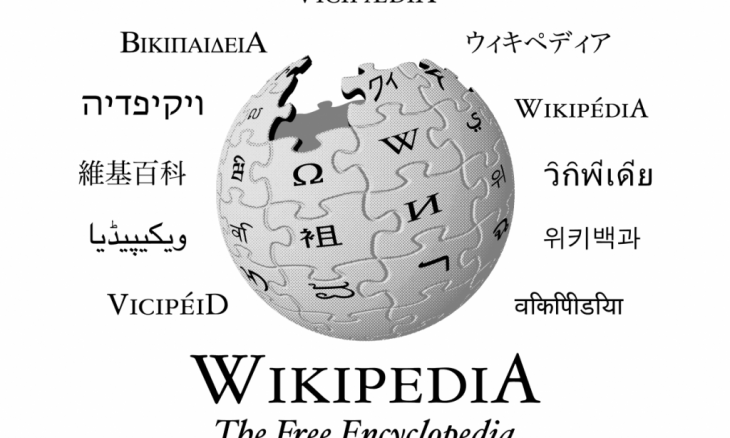
![Wikipedia Rich Text Editor[beta]](https://biznology.com/wp-content/uploads/2015/02/wRTE-1024x640.png)



